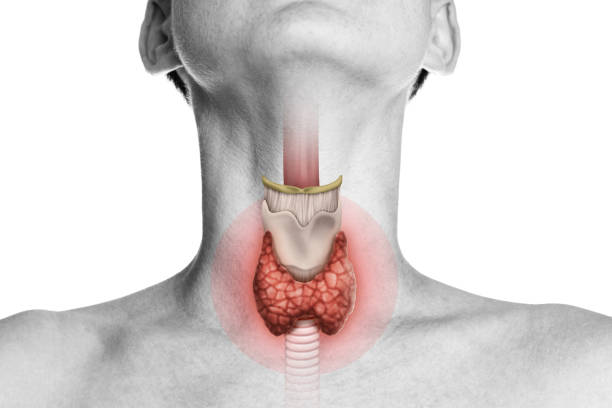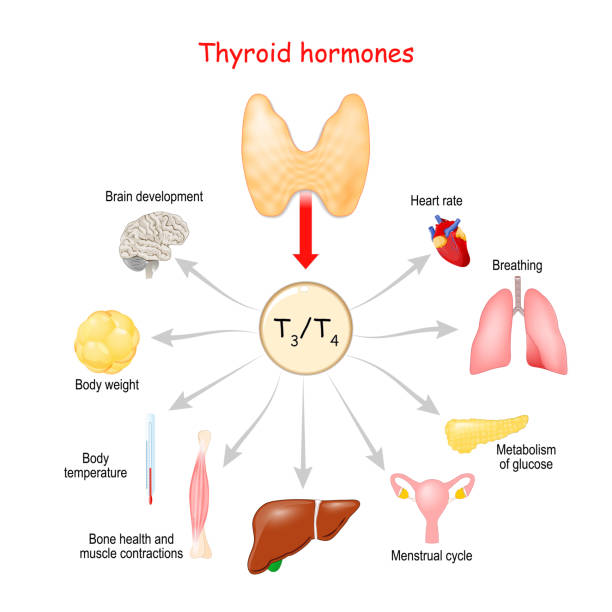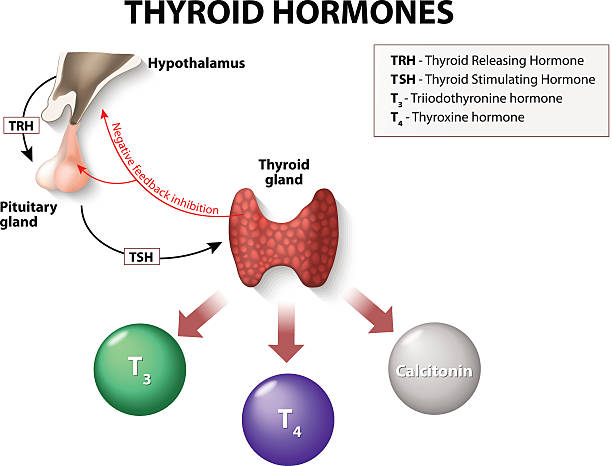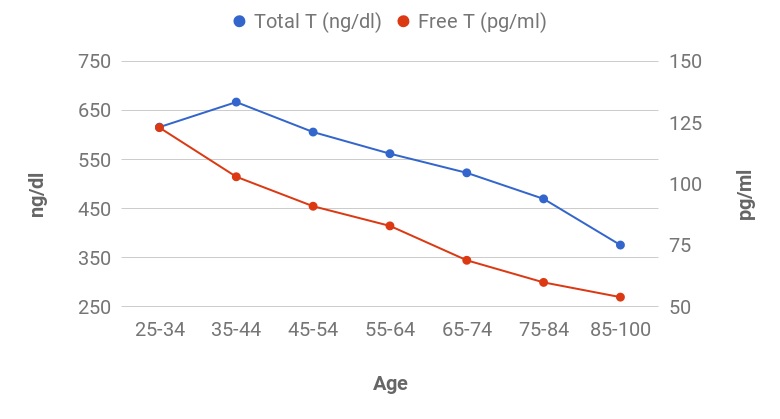7 Benefits of a Healthy Thyroid in Men: Sexual and Physical Wellbeing

When it comes to the benefits of a healthy thyroid in men, the advantages cannot be overstated. The thyroid gland, nestled at the base of the neck, plays a pivotal role in regulating metabolism, energy levels, and overall well-being. While both men and women rely on a properly functioning thyroid for optimal health, today we will specifically explore the unique benefits of a healthy thyroid in men.
Men encounter their own set of health challenges, and maintaining a healthy thyroid can significantly contribute to their vitality and overall well-being. In this article, we will delve into the essential role of the thyroid in men, shedding light on the remarkable advantages that arise from its proper functioning. From heightened energy levels and weight management to enhanced cognitive function and mood stability, a healthy thyroid empowers men to embrace a fulfilling and vibrant life.
Read Also: 9 Healthy Eating Tips for Extremely Busy Professionals
Table of Contents
What does a healthy thyroid do? Functions of the thyroid

The thyroid gland, a small butterfly-shaped organ located in the neck, holds significant responsibility for maintaining the body’s equilibrium. It acts as a powerhouse, producing and releasing hormones that play a crucial role in various bodily functions. Through its intricate interplay with the hypothalamus and pituitary gland, the thyroid gland ensures that essential processes are regulated and harmonized.
The thyroid gland synthesizes two primary hormones: triiodothyronine (T3) and thyroxine (T4). These hormones, collectively known as thyroid hormones, are instrumental in regulating metabolism, growth, and development throughout the body. T3, the more potent of the two, influences a wide array of bodily functions, including heart rate, body temperature, and energy utilization. T4, on the other hand, acts as a precursor to T3 and is converted into its active form as needed.
To ensure proper functioning, the thyroid gland relies on a finely tuned feedback loop known as the hypothalamus-pituitary-thyroid (HPT) axis. The hypothalamus, a region in the brain, produces thyrotropin-releasing hormone (TRH) in response to signals from the body. TRH then signals the pituitary gland, situated at the base of the brain, to release thyroid-stimulating hormone (TSH). TSH, in turn, prompts the thyroid gland to produce and release T3 and T4. This delicate feedback system ensures that the body maintains a balanced level of thyroid hormones for optimal function.
What does the thyroid do in the male body? benefits of a healthy thyroid in Men

Metabolism regulation
A healthy thyroid plays a vital role in regulating the metabolic rate in the male body. The thyroid hormones, triiodothyronine (T3) and thyroxine (T4), produced by the thyroid gland, directly influence the body’s metabolism. These hormones stimulate cellular processes, enhancing the rate at which the body converts nutrients into energy.
When the thyroid functions optimally, it helps maintain a healthy metabolic rate, ensuring efficient energy utilization. This enables men to sustain adequate energy levels, support physical activity, and maintain optimal body weight.
An underactive thyroid causes the thyroid gland fails to produce sufficient thyroid hormones, leading to a sluggish metabolic rate. This slowdown can result in symptoms such as fatigue, weight gain, and difficulty losing weight despite dietary efforts.
On the other hand, an overactive thyroid, or hyperthyroidism, can cause an accelerated metabolic rate. With excessive levels of thyroid hormones, men experience increased appetite, unintended weight loss, and difficulty maintaining muscle mass. Hyperthyroidism can also lead to restlessness, irritability, and heightened sensitivity to heat.
Energy levels and fatigue
If the thyroid gland functions suboptimally, it leads to fatigue and low energy levels in men. An underactive thyroid, or hypothyroidism, is particularly associated with feelings of tiredness and sluggishness. In hypothyroidism, the inadequate production of thyroid hormones slows down cellular metabolism, resulting in reduced energy production. This leaves men feeling fatigued, mentally foggy, and lacking the energy required to tackle daily tasks.
Related: 3+ Amazing Benefits of a Healthy Gut Microbiome
Brain function and mood
Thyroid hormones interact with receptors in the brain, influencing the growth and development of neurons, as well as the synthesis of neurotransmitters. Adequate levels of thyroid hormones help promote efficient communication between brain cells, enhancing cognitive abilities such as learning, problem-solving, and decision-making.
As the thyroid in men functions properly, men experience improved cognitive function, sharper mental acuity, and enhanced overall brain performance.
Thyroid disorders can have a significant impact on mood regulation in men. Both hypothyroidism (underactive thyroid) and hyperthyroidism (overactive thyroid) can contribute to mood imbalances.
Fluctuations in thyroid hormones will show symptoms of depression, fatigue, irritability, restlessness, anxiety and a general feeling of low mood. Men experience a lack of motivation, reduced interest in activities they once enjoyed, and feelings of sadness or hopelessness.
Check Workouts and Diet Tips For Boosting Your Immune System Naturally.
Testosterone production

The interplay between thyroid hormones and testosterone levels is a critical factor in men’s reproductive health. Thyroid hormones play a regulatory role in testosterone production and function.
Thyroid hormones, specifically triiodothyronine (T3), have been shown to influence the production of sex hormone-binding globulin (SHBG), a protein that binds to testosterone. When thyroid hormones are at optimal levels, they help maintain appropriate levels of SHBG, which in turn affects the availability and activity of testosterone in the body.
Furthermore, thyroid hormones also influence the functioning of the testes, where testosterone is produced. Proper thyroid function ensures the normal development and activity of the testes, supporting testosterone synthesis.
Imbalances in thyroid function can have a significant impact on testosterone production and overall sexual health in men. Thyroid disorders lower testosterone levels. Inadequate thyroid hormone levels can impair the production and release of testosterone, potentially leading to symptoms such as reduced libido, erectile dysfunction, and compromised sexual performance.
For You: Drinking Coffee After Drinking Alcohol. Dangers & Side Effects
Fertility and sperm quality
Thyroid health plays a crucial role in male fertility. The thyroid gland and its hormones influence various aspects of reproductive function, including sperm production, sperm quality, and overall fertility.
Thyroid hormones, particularly triiodothyronine (T3) and thyroxine (T4), are involved in the regulation of the reproductive system. They support the development of sperm cells, the maturation of spermatozoa, and the maintenance of proper reproductive function in men.
Hypothyroidism and hyperthyroidism disrupt the normal development and maturation of sperm cells. This can lead to a decrease in sperm count, reduced sperm motility, and abnormal sperm morphology. These factors can impair fertility and increase the risk of infertility in men.
Read Also: The Benefits of a Healthy Gut-Brain Connection
Muscle development and strength
Thyroid hormones stimulate protein synthesis, which is essential for muscle tissue repair and growth. They also enhance the metabolism of carbohydrates and fats, providing the necessary energy for muscle contraction during physical activity.
Thyroid dysfunction can have consequences on muscle health and physical performance. When the thyroid gland does not function optimally, it can lead to imbalances in hormone production, affecting muscle function and performance.
When the thyroid is underactive (hypothyroidism), the reduced levels of thyroid hormones lead to muscle weakness, fatigue, and difficulties in building and maintaining muscle mass. Physical performance may be compromised, and individuals may experience reduced endurance and strength.
Conversely, with hyperthyroidism, excessive levels of thyroid hormones can result in muscle wasting, increased muscle breakdown, and reduced muscle strength. Individuals may experience muscle tremors, muscle fatigue, and a decrease in overall physical performance.
Exercise tolerance and endurance
The thyroid gland plays a vital role in maintaining exercise capacity and stamina in men. Thyroid hormones, such as triiodothyronine (T3) and thyroxine (T4), have a direct impact on energy production, metabolism, and cardiovascular function, all of which are crucial for exercise performance.
Thyroid hormones help regulate the metabolic rate, ensuring efficient energy utilization during physical activity. They contribute to the breakdown of nutrients and the production of ATP (adenosine triphosphate), which is the primary source of energy for muscle contractions during exercise. Adequate levels of thyroid hormones support optimal energy production, enhancing exercise capacity and stamina.
Furthermore, thyroid hormones influence cardiovascular function by increasing heart rate, cardiac output, and oxygen delivery to the muscles. This enables men to sustain physical effort, enhance endurance, and improve overall exercise performance.
Impacts of the Thyroid in Men Heart Health

On Thyroid hormones and cardiovascular function
To begin with, thyroid hormones have a direct impact on heart rate. When thyroid function is optimal, the production of hormones like thyroxine (T4) and triiodothyronine (T3) helps regulate the heart rate, ensuring it stays within a healthy range. However, imbalances in thyroid hormones can lead to abnormal heart rate patterns, such as tachycardia (increased heart rate) or bradycardia (decreased heart rate), which may pose risks to cardiovascular health.
Impacts on Men’s blood pressure levels
Furthermore, thyroid health influences blood pressure levels. Thyroid hormones can affect the sensitivity of blood vessels to signals that regulate blood pressure. When the thyroid is functioning normally, blood pressure is generally well-maintained. However, disruptions in thyroid function can lead to high blood pressure (hypertension) or low blood pressure (hypotension), both of which can have detrimental effects on the heart and overall cardiovascular system.
Effects on cholesterol levels from Thyroid in Men
In addition to heart rate and blood pressure, thyroid health also impacts cholesterol levels. Thyroid hormones help regulate the breakdown and removal of cholesterol from the bloodstream. When thyroid function is optimal, cholesterol levels remain balanced, reducing the risk of atherosclerosis and cardiovascular diseases. Conversely, thyroid disorders can disrupt this balance, leading to abnormal cholesterol levels, including elevated levels of LDL cholesterol, often referred to as “bad” cholesterol, which increases the risk of heart disease.
Hypothyroidism and hyperthyroidism’s impact on the heart
Hypothyroidism and hyperthyroidism have distinct impacts on the heart, highlighting the significance of thyroid management for reducing the risk of cardiovascular diseases. Let us explore the effects of these conditions on heart health and delve into the treatment options for hypothyroidism.
hypothyroidism caused by an underactive thyroid gland (i.e. when thyroid hormone levels are insufficient) reduces the heart rate tends to decrease, leading to bradycardia. This slower heart rate can result in reduced cardiac output, impairing the heart’s ability to pump an adequate amount of blood to meet the body’s needs. Additionally, hypothyroidism can cause an increase in blood pressure, which further burdens the cardiovascular system. Over time, these effects can contribute to the development of cardiovascular diseases such as heart failure and atherosclerosis.
Also hyperthyroidism caused by an overactive thyroid gland, also affects heart health. In this condition, excess thyroid hormones accelerate the heart rate, leading to tachycardia. The increased heart rate can strain the heart, causing it to work harder than necessary. It increases elevated blood pressure, putting further stress on the cardiovascular system. Arrhythmias, such as atrial fibrillation, are also more prevalent in individuals with hyperthyroidism. These cardiac abnormalities increase the risk of complications such as stroke and heart failure.
10 herbs to improve healthy thyroid in Men
Improving thyroid health can be supported by incorporating certain herbs into your routine. Here are ten herbs that have been associated with potential benefits for thyroid health:
- Ashwagandha
- Bladderwrack
- Bugleweed
- Coleus Forskohlii
- Guggul
- Lemon Balm
- Maca
- Nettle
- Reishi Mushroom
- Turmeric
7 Best Foods for Thyroid Patients
Maintaining a healthy diet is crucial for individuals with thyroid conditions. Here are seven foods that are considered beneficial for thyroid health:
- Seafood
- Brazil Nuts
- Yoghurt
- Eggs
- Leafy Green Vegetables
- Berries
- Whole Grains
Faqs on the benefits of a healthy thyroid in men
Does the thyroid increase testosterone?
The thyroid gland does not directly increase testosterone levels. However, it indirectly influences testosterone production by affecting the hypothalamus and pituitary gland, which are involved in regulating hormone production. Thyroid hormones help maintain the balance of other hormones in the body, including those involved in testosterone production. Any disruption in thyroid function can potentially impact testosterone levels, but the relationship between the thyroid and testosterone is complex and can vary from person to person.
What does the thyroid do in males?
The thyroid gland in males and females as well produces hormones responsible for controlling metabolism, growth, and development. Additionally, the thyroid helps regulate testosterone levels, which is important for male sexual function and fertility.




2 Comments